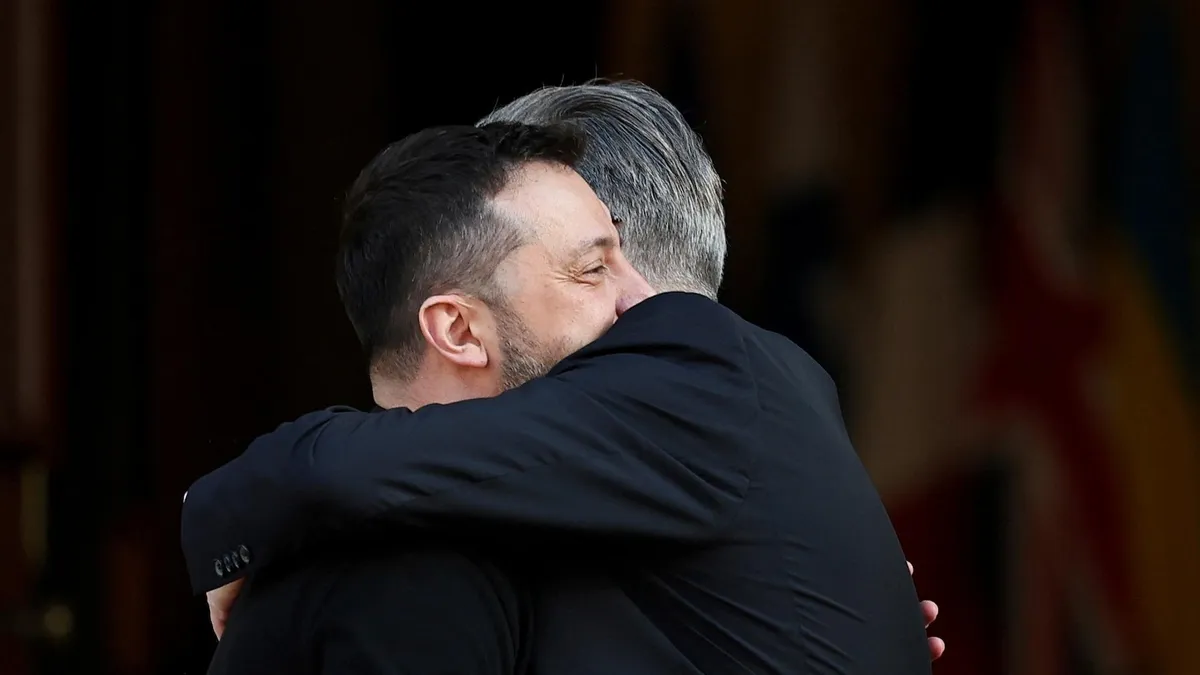
In a recent statement, Ukrainian President Volodymyr Zelenskyy emphasized that a deal to end the ongoing war between Ukraine and Russia is still "very, very far away." This assessment comes amidst concerns regarding the future of international support for Ukraine, particularly from the United States. Despite experiencing some diplomatic tensions with U.S. President Donald Trump, Zelenskyy remains optimistic about the continuation of American assistance.
Zelenskyy expressed confidence that the relationship between Ukraine and the U.S. will persevere, stating, "I think our relationship (with the U.S.) will continue, because it’s more than an occasional relationship." This sentiment reflects the strong support Ukraine has received from Washington over the past three years, which has been critical in sustaining its defense against Russian aggression. He reiterated, "I believe that Ukraine has a strong enough partnership with the United States of America" to ensure that essential aid continues flowing.
Despite his optimistic outlook, the situation on the ground in Ukraine remains precarious. The Ukrainian military is currently struggling to fend off larger Russian forces, as its army is understrength. This dire circumstance is made even more challenging by the recent diplomatic upheaval among Western nations that have been providing military hardware and financial aid to Ukraine.
President Zelenskyy was in London to participate in discussions led by U.K. Prime Minister Keir Starmer, who is working to unify European leaders in their support for Ukraine. These discussions are particularly significant in light of the political uncertainties in the U.S. and Trump’s overtures towards Russian President Vladimir Putin. European leaders are wary of Trump's motives and how they may affect the ongoing support for Ukraine.
Following the recent diplomatic events, prominent figures in Europe have voiced their concerns. Friedrich Merz, likely to be Germany's next leader, commented on the recent tensions, suggesting that the Oval Office incident was not spontaneous. "My assessment is that it wasn’t a spontaneous reaction to interventions by Zelenskyy, but apparently an induced escalation in this meeting in the Oval Office," he noted. Merz also expressed his astonishment at the tone of the discussions, pointing out a troubling continuity in Washington's approach toward Ukraine and Russia.
Despite the challenges, Merz advocates for maintaining the trans-Atlantic relationship, emphasizing the need for Europe to bolster its own security. "I would also advocate doing everything to keep the Americans in Europe," he stated, highlighting the importance of a united front in the face of ongoing threats.
As the situation continues to evolve, the resilience of Ukrainian forces and the strength of international alliances will play a crucial role in shaping the future of the conflict and the broader geopolitical landscape.
___
Geir Moulson contributed to this report from Berlin.
___